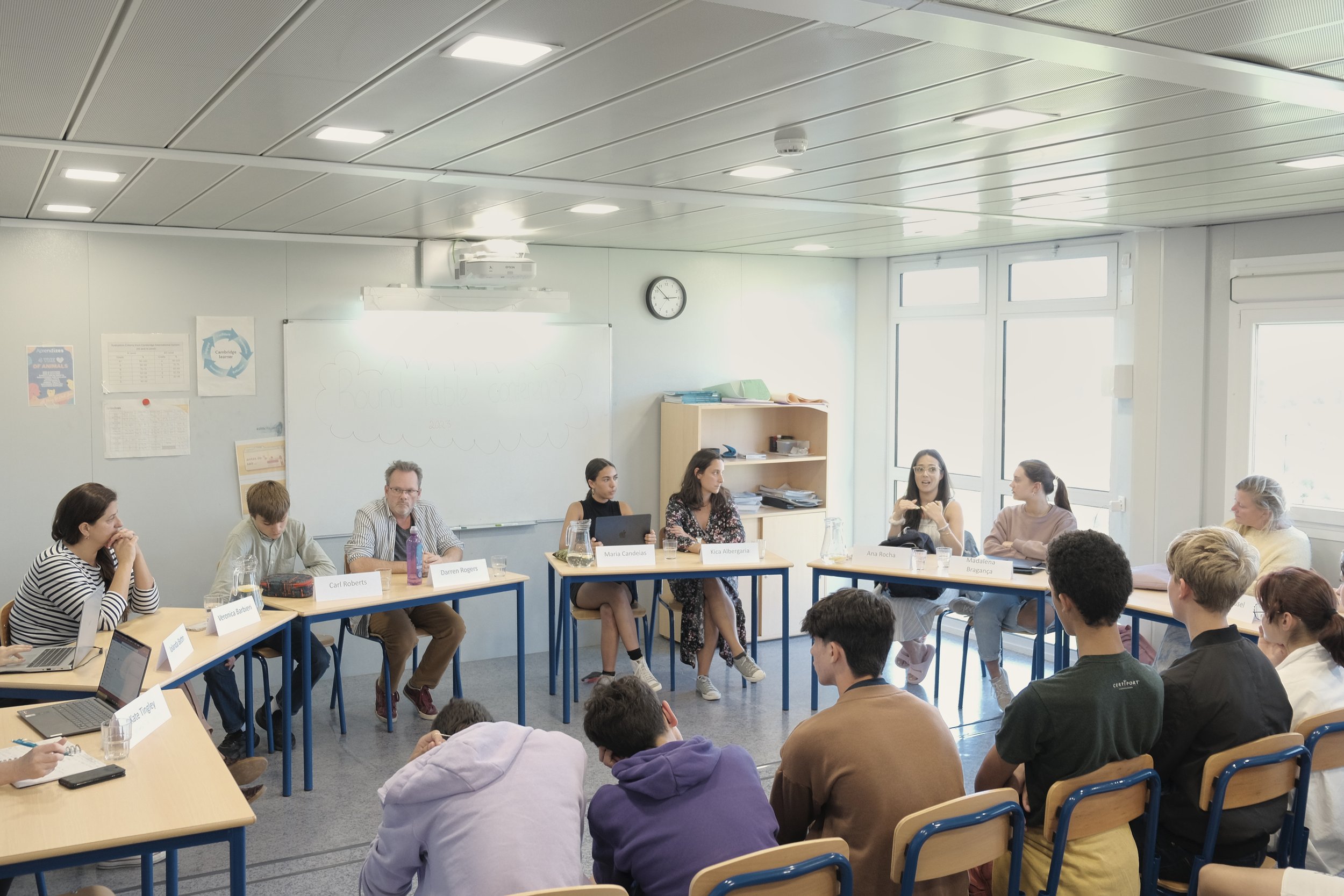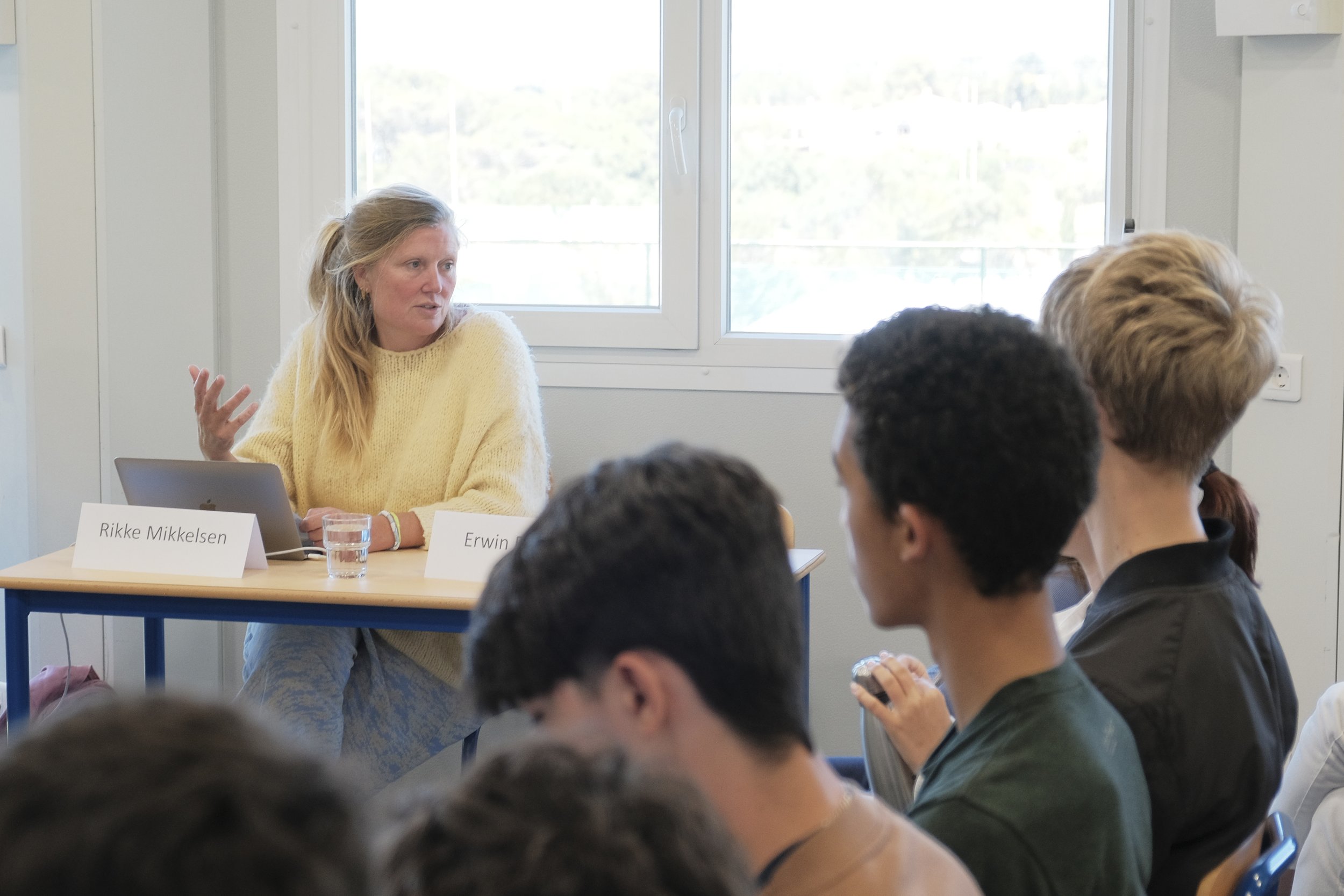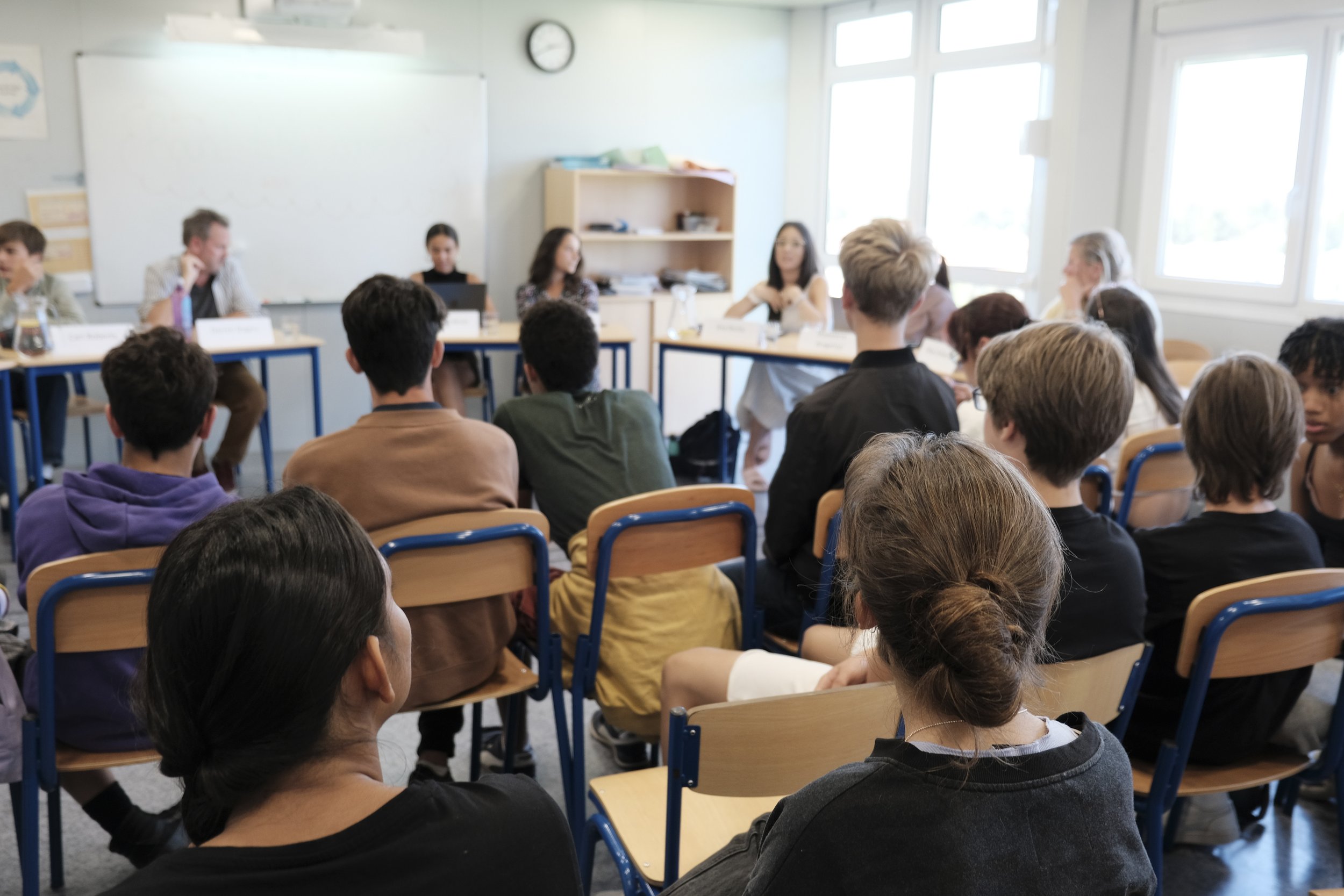Textbooks vs. Texting - The Debate of Phone Usage in School
By: Louisa Odendaal (student)
The school of Aprendizes has recently developed a new rule- no phones whatsoever. Obviously this caused some anger to arise in the students, and normally when a school makes a rule one would argue that the school is right, but is that always so? Maybe it’s important to consider both sides of the argument before making a new rule, and the students at Aprendizes made sure this was a reality.
On the 11th of May, Maria Candeias held a round table conference MUN style, in order to discuss the new no phones rule. Both teachers and students were invited to participate in the conference, intentionally picking multiple different people with multiple different points of view on the topic, some teachers agreeing that the no phone rule shouldn't exist and some students passionately vouching for the ban of cellular devices in school entirely. As future MUN delegates it is important to ensure the presence of different points of view as to avoid bias and a closed mind.
So, why ban phones? It is important to consider the quantity and quality of phone usage, many adolescents are spending an alarming amount of time on their phones, school could become an environment entirely devoid of that, allowing the students to engage socially and be present. There could also be questionable intentions behind the use of a phone, students doing something they aren’t supposed to. Using your phone does not only distract you but it can also distract others, in case the phone user accidentally plays a loud noise or they are playing a game distracting the person behind them. According to the school’s psychologist Kica, adults possess the ability to self-regulate, whereas teenagers aren’t able to control impulses as well.
There’s also the question of addiction, if students are allowed to use their phone at any time throughout the day could that worsen cases of addiction? Addiction to phones can stem from the instant gratification you get from certain apps such as social media, which contrasts to the slow gratification environment of school.
The usage of phones in the classroom also causes students to lie to teachers due to the fact that they may be doing something they shouldn’t be as it’s easy to get side-tracked. It is even said that phones cripple minds. Research shows that smart phones are causing physical damage to our brains, shortening our attention span and damaging memory. Phones may be convenient but is it really worth you forgetting to take down that one skeleton Halloween decoration and becoming a murder suspect? It is also worth noting that a no phone rule allows for the privacy and safety of students and teachers, once something goes online it can never be taken down!
One would jump to the conclusion that phones should not be allowed; I mean the students have all their time outside of school to use their phones, right? Never forget about the other side of the argument. Phones are a part of our lives and as far as many people are concerned, they aren’t going anywhere. It’s important we learn how and when to use them. If we don’t learn how to use a phone for the right thing at the right time, you could one day end up binging the latest Netflix series at your office job. It should be the school’s job to teach students how to use a phone properly and in an ethical manner to prepare them for their future. Isn’t that what school’s all about?



From what I’ve seen the phone rule hasn’t been that effective in banning students from using their phones, instead it has just made it more difficult but not impossible. This leads to students checking their phones at unorthodox times, meanwhile if it was allowed to use the phone during break time, you could just check whatever you need to check and not have to do that at other times. It’s also a question of responsibility vs privilege. Is it simply just a privilege to use our phones at school or do we have a responsibility to ensure we use our phones correctly at school? I believe the only way to learn how to use phones correctly at school is to plainly just use our phones at school.
Now there were some questions that went unanswered at the conference, such as the issue of the firewall and which resources should be banned using it. There was also the question of at what age do young people learn restraint? Perhaps these questions could be open for debate at future round table conferences? In closing, it was agreed at the conference that students should be more involved in the creation of rules, it is also important to prioritize a safe working environment, but overall, there was a general consensus that things needed to change.
The round table conference really demonstrated students taking initiative. It was a big learning experience for the students as well as the teachers and taught them how to handle certain things/situations they don’t agree with, and to value both sides of the argument. Compare that to reading a couple paragraphs in a book. I believe this active learning style should be more present in Aprendizes as well as all schools as it is relevant to the students and involves the students. No matter what the final rule is decided to be, the experience will remain a positive one.

